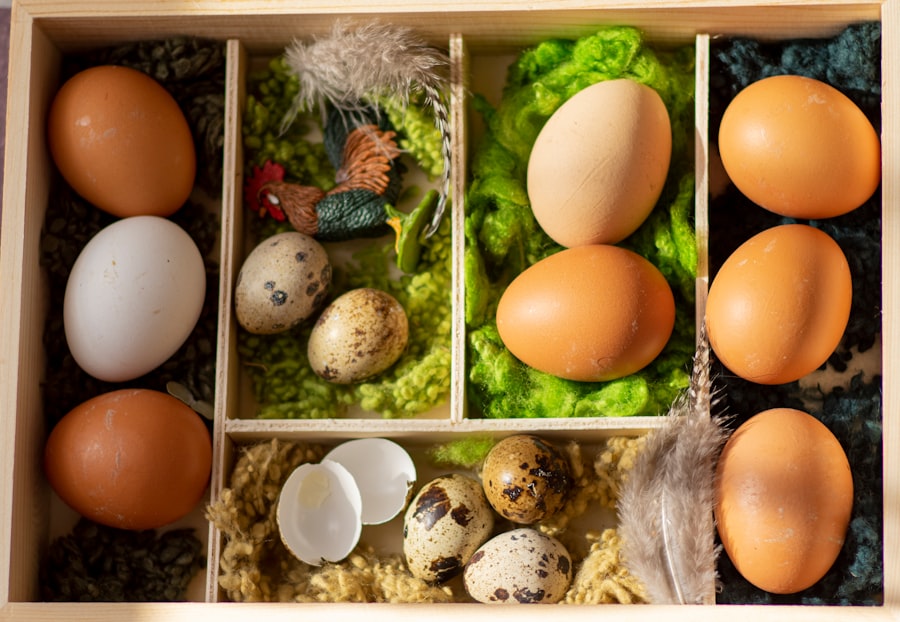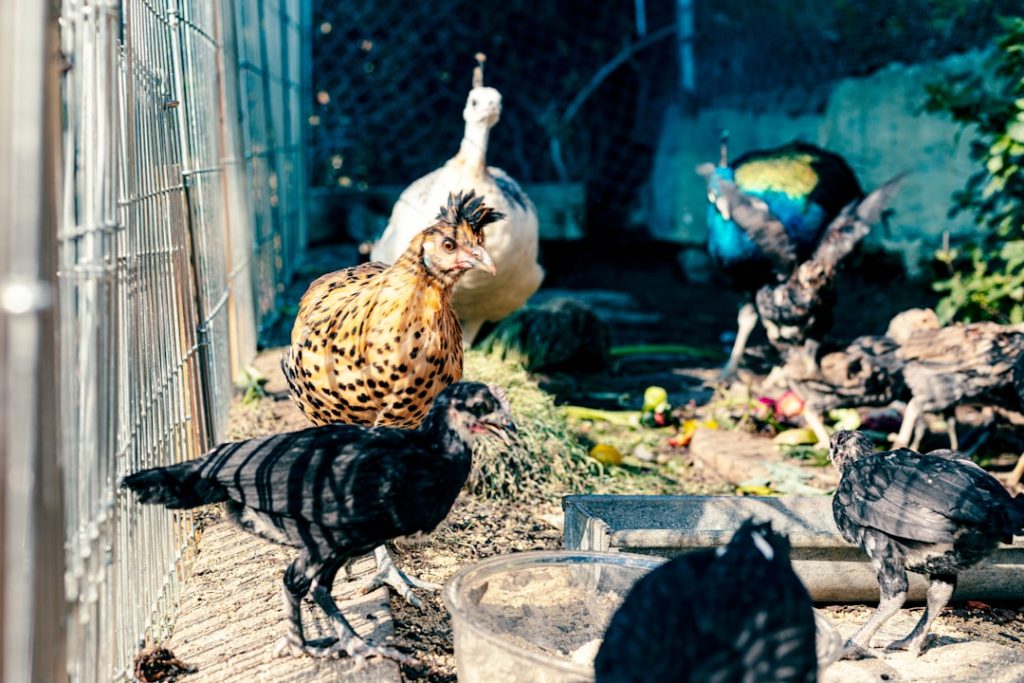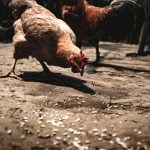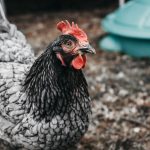Raising chickens can be both fulfilling and environmentally friendly, but the expense of commercial feed can be significant. Fortunately, alternative feeding methods exist that can provide chickens with a balanced diet without relying exclusively on purchased feed. These methods include encouraging natural foraging behavior, cultivating feed crops, utilizing kitchen scraps and leftovers, and incorporating insects into their diet.
By implementing these strategies, chicken keepers can develop a more sustainable and cost-effective feeding system for their flocks. This article will examine these approaches in depth and offer practical advice for maintaining chickens without the need for store-bought feed.
Table of Contents
- 1 Utilizing Natural Foraging for Chicken Nutrition
- 2 Growing Your Own Chicken Feed
- 3 Using Food Scraps and Leftovers for Chicken Feed
- 4 Incorporating Insects and Bugs into the Chicken Diet
- 5 Creating a Sustainable Chicken Feeding System
- 6 Conclusion and Tips for Successful Chicken Feeding without Buying Feed
- 7 FAQs
- 7.1 What are some ways to keep chickens without buying feed?
- 7.2 How can chickens be allowed to free-range?
- 7.3 What kitchen scraps and garden waste can be fed to chickens?
- 7.4 What are some examples of plants that can be grown for chicken feed?
- 7.5 Are there any potential drawbacks to keeping chickens without buying feed?
Key Takeaways
- Keeping chickens without buying feed is possible by utilizing natural foraging, growing your own feed, using food scraps, and incorporating insects into their diet.
- Natural foraging allows chickens to find their own food, such as grass, seeds, and insects, which can provide a significant portion of their nutritional needs.
- Growing your own chicken feed, such as grains, vegetables, and herbs, can reduce the reliance on store-bought feed and provide a more sustainable option.
- Food scraps and leftovers from your kitchen can be repurposed as chicken feed, reducing waste and providing additional nutrients for your chickens.
- Incorporating insects and bugs into the chicken diet can be a valuable source of protein and essential nutrients, contributing to a well-rounded and sustainable feeding system.
Utilizing Natural Foraging for Chicken Nutrition
Natural Foraging for a Well-Rounded Diet
By providing a diverse range of plants and insects for your chickens to forage, you can help ensure that they receive a well-rounded and nutritious diet without relying solely on store-bought feed.
Supplementing with Kitchen Scraps and Garden Waste
In addition to natural foraging, you can also supplement your chickens’ diet with kitchen scraps and garden waste. This can include fruit and vegetable peels, leftover grains and bread, and even small amounts of meat and dairy products.
Important Feeding Guidelines
However, it’s important to avoid feeding them anything that is spoiled or moldy, as this can make them sick. By incorporating natural foraging and kitchen scraps into your chickens’ diet, you can significantly reduce their reliance on commercial feed and create a more sustainable feeding system for your flock.
Growing Your Own Chicken Feed

Another way to reduce the cost of feeding your chickens is by growing your own feed on your property. This can include planting a variety of grains, legumes, and other crops that are suitable for chicken consumption. For example, you can grow corn, sunflowers, and soybeans to provide your chickens with a source of protein and energy.
Additionally, planting a diverse range of plants can help ensure that your chickens receive a well-rounded diet and have access to a variety of nutrients. By growing your own chicken feed, you can reduce your reliance on store-bought feed and have more control over the quality of the food you provide for your flock. In addition to growing grains and legumes, you can also consider planting a chicken-friendly garden with a variety of fruits, vegetables, and herbs that are safe for chickens to eat.
This can provide your flock with fresh, nutritious food throughout the growing season and help reduce their reliance on commercial feed. Additionally, planting a chicken-friendly garden can help create a more sustainable and self-sufficient feeding system for your flock.
Using Food Scraps and Leftovers for Chicken Feed
Food scraps and leftovers can also be a valuable source of nutrition for your chickens. Instead of throwing away kitchen scraps, consider feeding them to your flock to supplement their diet. This can include fruit and vegetable peels, leftover grains and bread, and even small amounts of meat and dairy products.
However, it’s important to avoid feeding them anything that is spoiled or moldy, as this can make them sick. By incorporating food scraps and leftovers into your chickens’ diet, you can reduce waste and provide them with a diverse range of nutrients without having to rely solely on store-bought feed. In addition to kitchen scraps, you can also consider collecting food waste from local restaurants or grocery stores to supplement your chickens’ diet.
Many establishments are willing to donate food scraps such as fruit and vegetable trimmings, bread, and other leftovers to farmers for animal feed. By collecting food waste from these sources, you can reduce the amount of commercial feed you need to purchase and create a more sustainable feeding system for your flock.
Incorporating Insects and Bugs into the Chicken Diet
Chickens are natural insectivores and enjoy hunting for bugs and insects as part of their diet. Allowing your chickens access to areas with plenty of insects can help supplement their diet with protein and other essential nutrients. This can include allowing them to free-range in areas with plenty of grasshoppers, worms, beetles, and other insects, or providing them with insect-rich compost piles or worm bins.
By incorporating insects and bugs into your chickens’ diet, you can reduce their reliance on commercial feed and provide them with a more natural and varied diet. In addition to hunting for insects, you can also consider raising mealworms or black soldier fly larvae as a supplemental food source for your chickens. These insects are high in protein and other essential nutrients and can be raised in small containers or compost bins.
By incorporating mealworms or black soldier fly larvae into your chickens’ diet, you can provide them with a sustainable source of protein without having to rely solely on store-bought feed.
Creating a Sustainable Chicken Feeding System

Natural and Varied Diet
Incorporating natural foraging, growing your own feed, using food scraps and leftovers, and incorporating insects into the chicken diet are all important components of creating a sustainable feeding system for your flock. By combining these methods, you can reduce the amount of commercial feed you need to purchase and provide your chickens with a more natural and varied diet.
Monitoring Nutritional Needs
To create a successful sustainable feeding system for your flock, it’s important to carefully monitor their nutritional needs and make adjustments as needed. This may include providing supplemental sources of calcium, vitamins, and minerals to ensure that they receive a well-rounded diet. Additionally, it’s important to provide access to clean water at all times and ensure that their living conditions are clean and sanitary.
Healthy and Productive Flock
By carefully managing their diet and living conditions, you can help ensure that your flock remains healthy and productive without having to rely solely on store-bought feed. This approach can help reduce waste, lower costs, and promote self-sufficiency on your property.
Conclusion and Tips for Successful Chicken Feeding without Buying Feed
In conclusion, keeping chickens without buying feed is possible by utilizing natural foraging, growing your own feed, using food scraps and leftovers, incorporating insects into their diet, and creating a sustainable feeding system. By combining these methods, you can reduce the amount of commercial feed you need to purchase and provide your flock with a more natural and varied diet. To successfully keep chickens without buying feed, it’s important to carefully monitor their nutritional needs, provide access to clean water at all times, and ensure that their living conditions are clean and sanitary.
Some tips for successful chicken feeding without buying feed include providing access to a large outdoor area with plenty of vegetation and insects for natural foraging, growing a variety of grains, legumes, fruits, vegetables, and herbs on your property, collecting food scraps from local sources to supplement their diet, incorporating mealworms or black soldier fly larvae as a source of protein, carefully monitoring their nutritional needs, providing access to clean water at all times, and ensuring that their living conditions are clean and sanitary. By following these tips and methods, you can create a sustainable feeding system for your flock without having to rely solely on store-bought feed.
If you’re interested in keeping chickens without buying feed, you may also want to consider alternative methods for raising poultry. One option is to allow your chickens to free-range and forage for their own food. This article on Poultry Wizard discusses the best type of coop for chickens and how to create a suitable environment for them to find their own food. This can be a more sustainable and cost-effective approach to raising chickens.
FAQs
What are some ways to keep chickens without buying feed?
There are several ways to keep chickens without buying feed, including allowing them to free-range, supplementing their diet with kitchen scraps and garden waste, and growing your own chicken feed.
How can chickens be allowed to free-range?
Chickens can be allowed to free-range by providing them with access to a large outdoor area where they can forage for insects, seeds, and plants. It’s important to ensure that the free-range area is secure from predators.
What kitchen scraps and garden waste can be fed to chickens?
Chickens can be fed a variety of kitchen scraps, including fruit and vegetable peels, bread, and cooked grains. Garden waste such as weeds, grass clippings, and fallen fruits can also be fed to chickens.
What are some examples of plants that can be grown for chicken feed?
Plants that can be grown for chicken feed include corn, sunflowers, and various types of grains such as wheat, barley, and oats. These can be grown in a garden or on a small scale farm.
Are there any potential drawbacks to keeping chickens without buying feed?
One potential drawback of keeping chickens without buying feed is that it may require more time and effort to provide a balanced diet for the chickens. Additionally, the quality and quantity of eggs and meat produced by the chickens may be affected.
Meet Walter, the feathered-friend fanatic of Florida! Nestled in the sunshine state, Walter struts through life with his feathered companions, clucking his way to happiness. With a coop that’s fancier than a five-star hotel, he’s the Don Juan of the chicken world. When he’s not teaching his hens to do the cha-cha, you’ll find him in a heated debate with his prized rooster, Sir Clucks-a-Lot. Walter’s poultry passion is no yolk; he’s the sunny-side-up guy you never knew you needed in your flock of friends!







